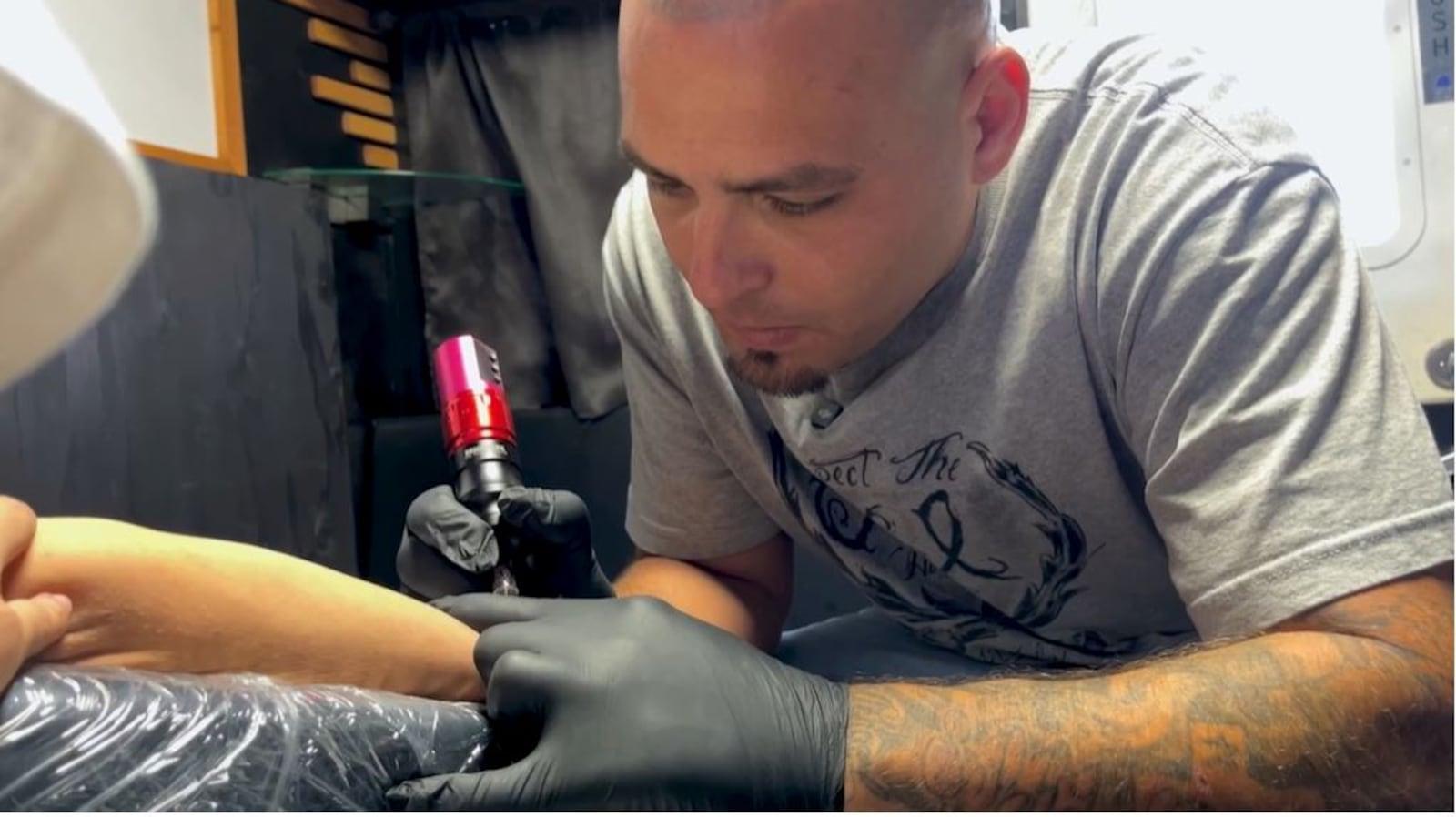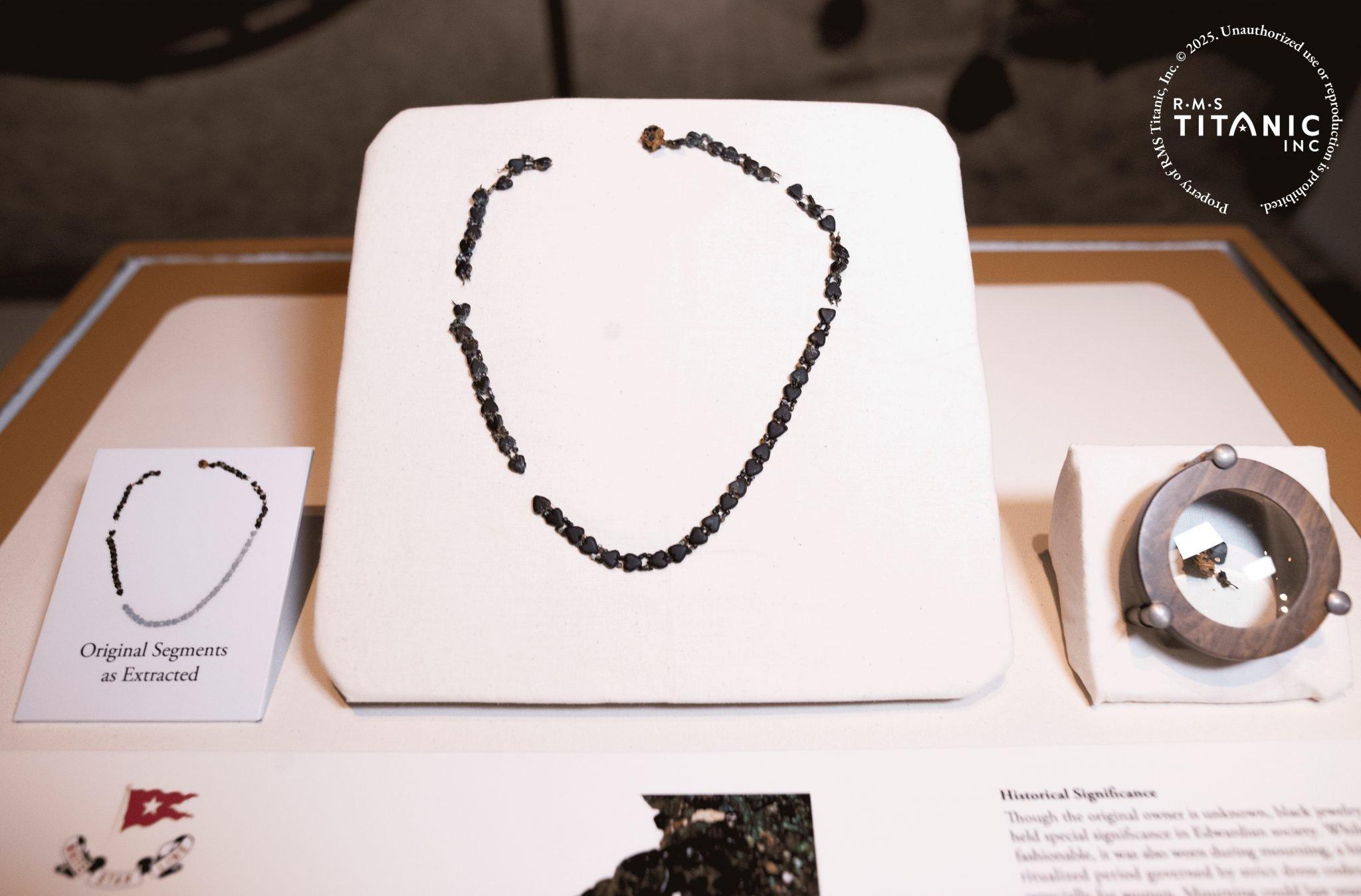Scroll For More

Score (98)
This Ghanaian Nurse Just Won a Global Award for Transforming Cancer Care
Naomi Oyoe Ohene Oti, an oncology nurse from Ghana, has been honored with the 2025 Aster Guardians Global Nursing Award for her groundbreaking contributions to cancer care and nurse training. The award, which includes a $250,000 prize, was presented in Dubai by Sheikh Nahyan bin Mubarak Al Nahyan, UAE Minister of Tolerance and Coexistence. Ohene Oti leads nursing at the National Radiotherapy Oncology and Nuclear Medicine Centre at Korle-Bu Teaching Hospital in Accra. She was chosen from 100,000 applicants across 199 countries for her efforts to address cancer care inequities in Ghana and Africa through education and system reform. “For over two decades, I have witnessed the inequities in cancer care firsthand and dedicated myself to closing these gaps through training, outreach, and system-level change,” she said during the ceremony. “This recognition is not mine alone – it belongs to every nurse across Ghana, Africa, and the world who leads with resilience, compassion, and courage.” Under her leadership, significant advancements have been made in Ghana’s oncology nursing sector. She initiated training programs with international partners like Canada’s Cross Cancer Institute and helped develop Ghana’s postgraduate oncology nursing curriculum in 2015. Beyond national borders, Ohene Oti has influenced cancer nursing policy across Africa. She serves on committees such as AORTIC's education committee and collaborates with global organizations like ASCO. The award highlights the vital role of nurses worldwide. WHO Director-General Dr. Tedros Adhanom Ghebreyesus praised nurses as essential to healthcare systems globally. Launched by Aster DM Healthcare in 2021, this year’s award cycle saw a 28 percent increase in applications over last year. Dr. Azad Moopen of Aster DM Healthcare commended Ohene Oti as an innovator and leader.

Score (96)
8-Year-Old Boy Climbs El Capitan, Following His Brother's Legacy
Three years after Sam Evermore made headlines as the youngest person to ascend Yosemite’s iconic El Capitan, his younger brother Sylvan has now followed him up the same 3,000-foot wall — at the exact same age. On October 24, Sylvan Evermore and his father, Joe Evermore, reached the top of El Capitan after a seven-day climb along the Freerider route. The pair, along with two other climbers and a film crew, used a technique known as rope ascent or “jugging,” in which a climber uses handheld devices to ascend a fixed rope already placed by a lead climber higher up the wall. “It was 100 percent his choice,” Joe wrote on Instagram. “And he did keep going. Step by step, move by move, he pushed through fear and found something deeper.” The Evermores — formerly known as the Baker family — live in Colorado Springs, Colorado. Their latest climb follows Sam’s 2022 ascent of El Capitan, which made global headlines and sparked debate in the climbing community over what should count as a “climb.” In both cases, the boys used jugging rather than traditional free or aid climbing. Jugging doesn’t require placing protection or navigating the rock face by hand and foot, but as many climbers have pointed out, it’s still an intense physical and mental challenge — especially for a child. “I’ve jugged the whole thing many times—it’s crazy-hard for an adult,” said Hans Florine, the unofficial record-keeper of El Capitan speed climbs, in an interview with the San Francisco Chronicle. “If [the Evermores] are being honest about what they’re doing, I think it’s great.” Joe Evermore addressed some of the criticism the family received after Sam’s climb in 2022. “So far, there are only two kids who’ve climbed El Capitan at the age of 8,” he wrote on Instagram. “Of course, they did it the safest way possible by rope ascent, but that doesn’t make it any less extraordinary.” He added, “These ‘El Cap Kids’ have huge dreams ahead … and something tells me they’ll both be back on that big wall before long.” During the recent climb, Sylvan hit some rough patches. At times, he cried and questioned whether he could keep going. But ultimately, he did — with the help of his father, a small team, and a lot of grit. Joe described the experience not just as a climbing feat, but as a lesson in parenting and resilience. The family hopes to create a documentary about both boys’ climbs, and about Joe’s philosophy as a father. Earlier this year, Sam — now 11 — climbed the Matterhorn in the Swiss Alps, continuing what’s becoming a string of high-altitude accomplishments for the Evermore brothers. “I’m hoping that my story inspires fathers and sons to get out and do something that seems impossible,” Joe said during an interview with ABC’s World News Tonight in August. Whether or not everyone agrees with the definition of “climbing,” it’s clear that for the Evermore family, the view from the top is only part of the story.

Score (97)
Teens Refurbish 80,000 Bicycles To Aid Community And Beyond
In Boston, a nonprofit called Bikes Not Bombs is using bicycles to drive social change. Founded in 1984 by a group of passionate cyclists, the organization has grown its mission significantly over the decades. It now focuses on providing international aid while fostering economic resilience among marginalized youth in Boston. The Bikes Not Bombs shop isn't your average bike repair spot. Here, teenagers participate in a 10-week program where they learn how to maintain and operate a used bicycle, which becomes theirs upon completing the course. But the opportunities don't end there. Graduates can work at the shop, joining about 200 young people who repair and refurbish thousands of bikes annually. Globally, Bikes Not Bombs has shipped over 80,000 bicycles to developing countries in the past forty years. The nonprofit also sells secondhand bikes directly out of its Boston shop to local cyclists. But their efforts extend far beyond shipping bikes; they’ve helped set up self-supporting bike shops in places like Nicaragua, Haiti, the Dominican Republic, and El Salvador. These shops train local technicians to build community resilience and sustainability. The organization's mission emphasizes transportation without reliance on fossil fuels. "Our roots are in shipping bikes across the world," said Sara Gonzalez, donation coordinator at Bikes Not Bombs, as quoted by The Dorchester Reporter. She added that as they've evolved, members see the "not bombs" aspect as cultivating opportunities for prosperity in developing regions. Back home in Boston, Bikes Not Bombs hosts communal rides and safety seminars and holds an annual three-day Youth Bike Summit for young mechanics and activists interested in making an impact through cycling. Antonio Venus Reeves is one such individual who feels connected to this mission. "It's like my second home," he shared about his experience with Bikes Not Bombs. A decade ago, he brought a bike for repair; today he works there as an associate. "I'm always learning something new every day," he said.

Score (93)
Scientists Uncover Massive New Map Showing 300,000 Km Of Ancient Roman Roads
Turns out, not all roads led to Rome — and many more Roman roads existed than we ever realized. A new map compiled by researchers at Aarhus University has expanded the known length of ancient Roman land routes from 190,000 to nearly 300,000 kilometers. That’s roughly seven times the circumference of the Earth. But even that staggering number represents just 3 percent of the vast network the Romans are believed to have built. “This was a huge surprise and a sobering realization,” said archaeologist Tom Brughmans, who led the Itiner-e project. “Roads are one of the most enigmatic topics in Roman archaeology and history. How can it be that we only know the location of 3 percent with certainty?” The map, now publicly available, is the first open dataset to consolidate information about Roman roads across the entire empire, which at its peak spanned 5 million square kilometers and 40 modern-day countries. Each of the 14,769 road segments in the database is linked to specific sources and includes a rating of how certain the route’s location is. “This is the first open dataset that combines research about the location of all Roman roads across the entire empire,” said Brughmans. “They have been studied for over 200 years, and we should have a reliable resource that makes these scholarships available to everyone.” Researchers used a combination of archaeological evidence, ancient Roman itineraries, milestone data, topographic maps from the 19th and 20th centuries, and satellite imagery to piece together the updated network. In some cases, they even used old satellite photos to find roads now submerged under modern dam reservoirs. One of the most striking findings? Rome wasn’t actually the main hub of the land-based road network. While the ancient capital gave rise to the famous phrase “all roads lead to Rome,” the new map shows that overland transportation actually concentrated in the Po Valley and Alpine corridor in northern Italy. With Rome sitting on a peninsula, it functioned more like a cul-de-sac — connected to the wider empire primarily via river and maritime routes, rather than by land. “This period fundamentally restructured transport infrastructure in the region, on a scale unseen until the industrial revolution in the 19th century,” Brughmans said. “And we now have the dataset that allows us to study how terrestrial mobility changed over 2,000 years.” The Itiner-e project builds on earlier resources like the Digital Atlas of Roman and Medieval Civilizations (DARMC), itself based on the 2000 Barrington Atlas of the Greek and Roman World. That earlier effort recorded about 188,000 kilometers of Roman roads; Itiner-e now puts the total at just over 299,000 kilometers. But researchers emphasize this is still just the beginning. “Three hundred thousand kilometers is really only the tip of the iceberg,” said Brughmans. “We hope to stimulate future work to improve the open knowledge of where all Roman roads are.” The legacy of Rome’s roadwork is still visible today. Many modern highways and transport corridors follow the same paths laid down by Roman engineers thousands of years ago. In some parts of Europe and the Middle East, Roman roads remain in use or have been repurposed into local routes. Understanding where and how these ancient roads were built helps scholars trace the spread of people, goods, ideas, and even diseases across the Roman Empire. It also shows how the empire maintained its grip on such a vast territory long before modern infrastructure existed. With the Itiner-e map now available to researchers and the public, the hope is that more discoveries will follow — and that eventually, we’ll get a clearer picture of the ancient world’s most legendary road system.
%3Amax_bytes(150000)%3Astrip_icc()%3Afocal(749x0%3A751x2)%3Aformat(webp)%2FPittsburgh-Dad-starts-a-food-pantry-110525-2-622564b3839d4c6c877f3f5cdc779271.jpg&w=3840&q=75)
Score (97)
Pittsburgh Dad And Sons Create Viral Front-Yard Food Pantry, Receive Anonymous Note and Cash For Help
In a quiet Pittsburgh suburb, what began as a weekend lesson for two young boys has grown into a food pantry movement watched by millions. AJ Owen, a father of two in Whitehall, started a front-yard food pantry with his sons after hearing about delays to SNAP benefits caused by the government shutdown. The idea was simple: fill a few coolers with food and let anyone in the neighborhood take what they needed. “We literally started with one tote that we had and two hand coolers out of the garage,” Owen told People. “You don’t need a permanent building to get something to go, just a tote and two coolers, and look where it can get you.” That was on October 26. Just over a week later, the project has exploded into something far bigger — fueled by a viral TikTok video, a mysterious envelope full of cash, and a steady stream of support from across the country. Owen had explained the SNAP situation to his sons, aged 7 and 9, wanting them to understand why some neighbors might soon be struggling even more to buy groceries. Their response: “How can we help people?” That question launched what has now become a daily effort. Owen and his boys stock bins with nonperishables, diapers, formula, and whatever else is donated. Neighbors drop off home-cooked meals. Strangers swing by with grocery hauls. Even the Pittsburgh Steelers joined in — defensive lineman Yahya Black personally delivered food and supplies on behalf of the team. But the moment that changed everything came quietly. Owen found an envelope in his mailbox. It was thick, unmarked, and contained thousands of dollars in cash, along with a handwritten note: “May God prosper and bless your food pantry.” “I opened it up and just — hundred-dollar bills, a stack of hundred-dollar bills,” he said. “I truly didn’t know how to react. I froze. I started shaking and I started crying.” Owen posted a video of the discovery to TikTok, and it blew up — nearly 18 million views and counting. In it, he’s visibly stunned, holding back tears as he reads the note aloud. The emotional clip not only catapulted his food pantry into national attention, it inspired others to follow suit. Across the U.S., people have started tagging Owen in their own versions of neighborhood food stands and community pantries, citing his video as the spark. “Every day continues to evolve in a great way,” Owen said. “Every challenge that comes up, we just tackle head-on and keep feeding people.” The shelves he and his sons set up are restocked constantly. He says some visitors take what they need, others return later with extra to share. It’s become more than just a source of groceries. For many, it’s a symbol of hope and community. The proud dad said he doesn’t know how long the pantry will last, but he’s committed for as long as people need it. “People deserve food, people deserve to be fed,” he said. “As long as there’s a need in our community, we will keep this out.” He’s quick to point out the heart of the effort: hospitality. “Making a food pantry is no different than me inviting you over to my house for dinner,” he said. “Come grab a meal. Come grab a drink. Come grab what you need. I’m happy to have you.” It’s that kind of openness that’s kept people coming back — and brought in support from places Owen never expected. “My youngest son said, ‘Dad, what if nobody comes?’” he recalled. “And I said, ‘Buddy, if we help one person, then this was all worth it.’ And here we are helping a heck of a lot more than one person.”

Score (96)
New Peanut Patch Helps Toddlers Build Tolerance To Deadly Allergy
A skin patch that trains toddlers’ immune systems to tolerate peanuts may offer new hope to families dealing with severe food allergies. In a long-term study presented at the annual American College of Allergy, Asthma and Immunology (ACAAI) meeting in Orlando, researchers reported that over 70 percent of young children treated with the “peanut patch” could safely tolerate the equivalent of three to four peanut kernels after three years. The patch, known as the Viaskin Peanut Patch, uses a method called epicutaneous immunotherapy (EPIT). It works by delivering tiny amounts of peanut protein through the skin with the goal of building up the body’s tolerance and reducing the risk of a severe reaction in case of accidental exposure. The findings are especially encouraging for the growing number of parents whose children live with peanut allergies. Roughly one in 50 toddlers has the condition, which can cause potentially life-threatening reactions from even trace amounts of peanuts. “These results show that ongoing treatment with the peanut patch continues to improve tolerance and remains safe over time,” said study lead Dr. Matthew Greenhawt, director of the Food Challenge and Research Unit at Children's Hospital Colorado. The latest analysis followed children who originally received a placebo during an earlier one-year study. Those toddlers then went on to receive the peanut patch for up to three years. By the end of that period, nearly half of them could tolerate more than just a few peanut kernels. Even more notable: none experienced treatment-related anaphylaxis — the most dangerous kind of allergic reaction — during the third year. “The treatment continued to show a strong safety record,” said Greenhawt. “Skin irritation at the patch site – the most common side effect – became less frequent over time.” The study also found that, after three years, children's reactions during food challenges were generally milder, with fewer severe symptoms compared to earlier in the treatment. Researchers say the results support growing evidence that early intervention could change the long-term trajectory of peanut allergies. “For parents of toddlers with peanut allergies, this kind of approach may one day offer peace of mind,” said Greenhawt. “It could reduce the risk of having an allergic reaction, including severe reactions, from accidental exposure.” Still, experts caution that any peanut desensitization should only be done under medical supervision. Parents should consult an allergist before considering emerging treatment options. The Viaskin Peanut Patch is still under investigation and not yet widely available. But with each round of data showing improved tolerance and sustained safety, researchers are optimistic it may eventually become a routine tool in the fight against food allergies.

Score (97)
Tattoo Therapy is Helping Formerly Incarcerated Individuals Heal Through Art And Conversation
For Michael McGee, tattoos are more than art; they're a testament to his life journey. Every piece of ink on his body tells a story—family losses, fatherhood, and even time spent in prison. But when he lost his 7-year-old daughter, McGee experienced a profound awakening. “I literally kind of had a dream of like, what am I here for? It just can’t be for drugs, violence, gangs, the street life. It has to be something bigger,” he said. This introspection led McGee to start Hustlin Ink, a mobile tattoo shop that offers more than fresh ink. It provides a space where clients can share their stories while getting tattooed. “You can come in here, sit down, get a tattoo, unwind, talk,” McGee explained. One client who recently visited Hustlin Ink is Isaac Lara. At 18 years old, Lara has already survived four gunshot wounds and joined a gang at just 12. Growing up in Lompoc left him feeling trapped between gang life and mundane job prospects. “It’s not really too many options out there for you,” Lara admitted. “You got to pick a side or work a 9-to-5 job.” Lara came to McGee's shop not just for ink but also to honor his close friend Monty. Monty's death in Santa Maria was a wake-up call for Lara. “My friend Monty…he was shot in Santa Maria at a truck meet…it sucked losing him,” Lara said. “That was really like (the) point in my life where I was just like (I) knew I need to stop.” Hustlin Ink provides Lara with an outlet he struggles to find elsewhere—a listening ear. “I don’t really have no one to talk to,” he shared. “It’s good to talk to someone sometimes.” McGee understands the challenges of shaking off past identities. “Everyone wants to look at you as the old chapter…the old who you was…and they don’t want to allow you to be a new person,” McGee noted. By offering conversation along with tattoos, McGee aims to break cycles of crime and incarceration. Suzanne Grimmesey from Santa Barbara County Behavioral Wellness appreciates this unique approach toward change. “Any way that you have the conversation…that’s what moves us forward…and that’s what takes away the stigma…from getting the help they may need and deserve,” Grimmesey commented. Through empathy and artistry, McGee helps clients like Lara turn over new leaves by giving them opportunities they might not find elsewhere. “Change is possible…it is…it’s not always easy…but it is possible," affirmed McGee.

Score (95)
Scientists Discovered a New Breeding Ground for This Endangered Porpoise
For the first time in decades, researchers are reporting a modest but hopeful rise in the number of vaquita porpoises—offering a rare glimmer of good news for a species once thought to be on the brink of extinction. Vaquitas, the world’s smallest and most endangered marine mammal, live only in a narrow patch of ocean in Mexico’s upper Gulf of California. Since scientists began monitoring them, their numbers have steadily declined—from an estimated 567 in 1997 to near single digits in recent years. Computer models had projected the species would be extinct by 2021. But the vaquita, it turns out, isn’t gone yet. In a recent survey, researchers counted more individuals than expected, marking the first time their estimated population has increased since monitoring began. “It underscores the urgency of creating the conditions necessary to improve [the vaquita’s] chances of survival,” said Catalina López-Sagástegui, a marine biologist and director of the Gulf of California Marine Program at the Institute of the Americas. While she was not part of the survey team, she called the findings “a reason for cautious optimism.” The species’ sharp decline over the past 25 years has largely been driven by gillnets—long nets used by fishers that hang vertically in the water. Vaquitas often became tangled and drowned, especially in nets used to illegally catch totoaba fish, whose swim bladders can fetch thousands of dollars on Chinese black markets. In 2017, Mexico banned the use of gillnets in the vaquita’s habitat. But enforcement has been inconsistent, and illegal fishing has persisted. In 2019, the Convention on International Trade in Endangered Species (CITES) stepped in with an agreement aimed at reducing demand for totoaba and removing gillnets from the region entirely. A “zero-tolerance” zone was created within the vaquita’s known habitat, where all fishing was banned. That move was met with fierce resistance from local fishers, many of whom rely on those waters for their livelihoods. Critics say enforcement efforts have unfairly penalized struggling communities, while failing to stop the flow of totoaba on the black market. Despite those tensions, something may be working. The uptick in vaquita numbers suggests that the population is stabilizing, or at least not declining as rapidly as before. Biologists warn that the total number remains critically low and the species is still in danger, but any increase—no matter how small—is notable. Vaquitas are notoriously difficult to study. They are shy, elusive, and only visible for a few seconds at a time when they surface. That makes every sighting valuable, especially when survival seemed so unlikely just a few years ago. With fewer than a dozen believed to be alive as recently as 2021, some experts feared the species was already functionally extinct. The recent findings, though limited in scope, offer a rare moment of hope in what has long been a tragic tale of decline. The next step, scientists say, is to double down on removing gillnets and supporting sustainable livelihoods for local communities—before the fragile progress slips away.

Score (90)
This Titanic Necklace Was Just Unveiled for the First Time in 100 Years
A black glass necklace from the wreck of the Titanic has gone on display in Orlando, offering a rare and emotional glimpse into the lives of those aboard the ill-fated ship. The necklace, newly unveiled at Titanic: The Artifact Exhibition in Orlando, had remained hidden for 113 years—first under the Atlantic Ocean, then inside a hardened mass of sediment known as a concretion. Salvaged in 2000 by RMS Titanic, Inc., the only company authorized to recover items from the Titanic’s debris field, the concretion sat untouched for more than two decades until a recent re-examination revealed a surprise. “We believed all associated artifacts had been removed,” said Tomasina Ray, president and director of collections at RMS Titanic, Inc., in an email. “However, during a recent review of material samples in storage, our team identified indications that something might still be embedded within the concretion.” What conservator Alex Klingelhofer eventually uncovered was a necklace made of French jet—black glass shaped into hearts and octagons. It’s a material that was widely used in mourning jewelry during the Victorian and Edwardian periods, hinting that the necklace’s owner may have been grieving someone at the time of the voyage. No one knows who that person was. With 1,496 lives lost in the 1912 disaster, and only limited insurance records to go by, identifying the necklace’s original owner is virtually impossible. Still, experts believe the piece was likely worn by a passenger in mourning, given its style and materials. “There was a certain drama and beauty in how sorrow was made visible,” Ray and her colleague Ross Mumford, research and content specialist at RMS Titanic, Inc., wrote. “This necklace offers a rare, tangible link to that world: it gives us a once-in-a-lifetime glimpse not only into the style and craftsmanship of the time, but also into the emotional landscape of the people aboard Titanic.” The necklace is now on view in the exhibition’s “Life Onboard” gallery at 7324 International Drive. While Titanic: The Artifact Exhibition has been open in Orlando for 26 years, it’s rare for new items to be added—especially one as intimate and evocative as this. The fact that it was hidden in plain sight, locked inside a clump of compressed ocean sediment for 25 years, only adds to the intrigue. “This black glass necklace embodies a striking duality: beauty and trauma, new beginnings and loss, 1912 and today,” Ray and Mumford said. “Its heart-shaped beads seem to mirror the style of modern jewelry, grounding viewers in the understanding that Titanic’s passengers were not so different from us.” Even now, more than a century later, the Titanic continues to offer fragments of human history—small, personal details that resist the grandeur of the ship’s legend. In a story so often retold through spectacle, this necklace offers something quieter: a worn memento of love, grief, or perhaps both.

Score (95)
Brittany Snow Opens Up About Rewiring Her Brain After Struggling With Body Image
Warning ⚠️ This story discusses eating disorders, depression, and self-harm. While it ends on a message of healing and self-compassion, it may be difficult for some readers — please take care and reach out for support if you need it. Brittany Snow is reflecting on how she learned to love herself again after years of battling body image issues, eating disorders, and depression. In a new cover story for Self, the 39-year-old actress shared that her struggles began early. As a young girl, she would collect and pore over women’s fitness magazines, hoping to find the secret to being “perfect.” “All I wanted was someone to tell me what they were doing so that I could do it too,” she said. By her teenage years, the Pitch Perfect star said her self-image had deteriorated to the point that she couldn’t even look at herself unclothed. “I had so much disdain for my body and I couldn’t see myself as a functional, beautiful being,” she recalled. “I only saw the things that were wrong with me.” Snow’s insecurities eventually spiraled into anorexia, exercise bulimia, depression, and self-harm. She entered treatment several times, including inpatient programs, but says it was a year-long outpatient program that truly changed her life. “I think rewiring my brain where I could count on myself and I could trust myself, I could be in a space and feel like I wasn’t going to do something harmful to myself, was the best thing that ever could have happened to my recovery,” she explained. Snow says learning to trust her body again was key. These days, even with roles that require vulnerability — like her recent part in The Hunting Wives, which included intimate scenes — she says relapse was never a concern. But that self-trust was tested during her 2022 divorce from real estate broker Tyler Stanaland. Snow admitted she stopped eating during that painful period — until she found comfort by showing herself the same gentleness she would show a child. “I’d be like, ‘Okay, baby girl, do you want a bagel? Let’s get you a bagel. We’re going to toast it. We’re going to put some cream cheese on it. Is that all you can eat? Okay, that’s okay,’” she said. “I started realizing that I was eating whatever I wanted. It completely changed my way of thinking about my body. I was talking to myself like someone I loved. And then I just never stopped doing that.” Snow says that shift — treating herself with kindness instead of criticism — became the foundation of her recovery. “I had to rewire my brain,” she said. “I had to learn to trust myself again.” If you or someone you know is struggling with an eating disorder, The Alliance for Eating Disorders offers free, therapist-led support groups and a helpline at 1-866-662-1235. For mental health support, text “STRENGTH” to the Crisis Text Line at 741-741 to connect with a certified counselor.

Score (96)
Feel Good Friday: Doctor Fulfills Dream Of Fatherhood By Adopting Teen With a Heartwarming Twist
Dr. James C. Wittig had always imagined becoming a father. A successful orthopedic oncologist in New Jersey, he used to joke that if he ever had kids, he’d skip the diaper stage and start with a 13-year-old. In 2015, that wish turned into something very real. A Facebook post caught his attention — a teenage boy named Ronnie had lost both parents, and someone was looking for a home for him. Wittig, a single and never-married doctor, didn’t hesitate. He reached out and volunteered. At the time, Wittig had no idea just how deep his connection to Ronnie would go. Months later, he would uncover a link that seemed almost too perfect to be coincidence. Wittig, who now chairs the Department of Orthopedics at Morristown Medical Center, has spent decades treating patients with bone cancer, including osteosarcoma. For years, he’s used a photograph in his lectures — a side-by-side image of two women he treated during his fellowship in the 1980s. One had a leg amputated. The other underwent limb-sparing surgery. The image was a teaching tool for generations of medical students. He kept in touch with the woman whose leg he saved. In 2015, he noticed she was helping find a guardian for Ronnie, the son of her late friend who had died from complications following her own leg amputation. Ronnie’s father had also recently passed away. Wittig reached out, and she arranged for him to meet the boy. He drove to northern Virginia and met Ronnie in person. They clicked. A second visit followed, and just hours after that, Ronnie made his choice. He wanted to live with Wittig. Two weeks later, guardianship was transferred. It wasn’t until months later — after they’d already been living together — that Wittig made the connection. The boy’s mother was the same woman whose image had appeared in his lecture slides for years. He’d never met her, but he’d been using her story to teach future doctors about cancer care. Now he was raising her son. “I see this whole thing as a synchronicity,” Wittig said. “One of those things in life that feels like it was meant to happen.” Ronnie, now an adult, attended Seton Hall Prep and completed welding school. Though he hasn’t been legally adopted yet, Wittig says that’s just paperwork. Their bond, he says, goes far deeper than that. “Being his dad has been one of the biggest miracles of my life,” he wrote in a post on Instagram. “I am so proud to call you my son… You are amazing to me and my hero.” Wittig says parenting has brought him more joy and meaning than he ever imagined. It’s also taught him a few things. “Kindness, compassion, empathy, love, joy, and happiness,” he said. “That’s what I’ve learned from Ronnie.” He hopes their story will show other older, single adults that it’s never too late to become a parent. “It doesn’t have to look traditional,” Wittig said. “Love is what makes a family.”